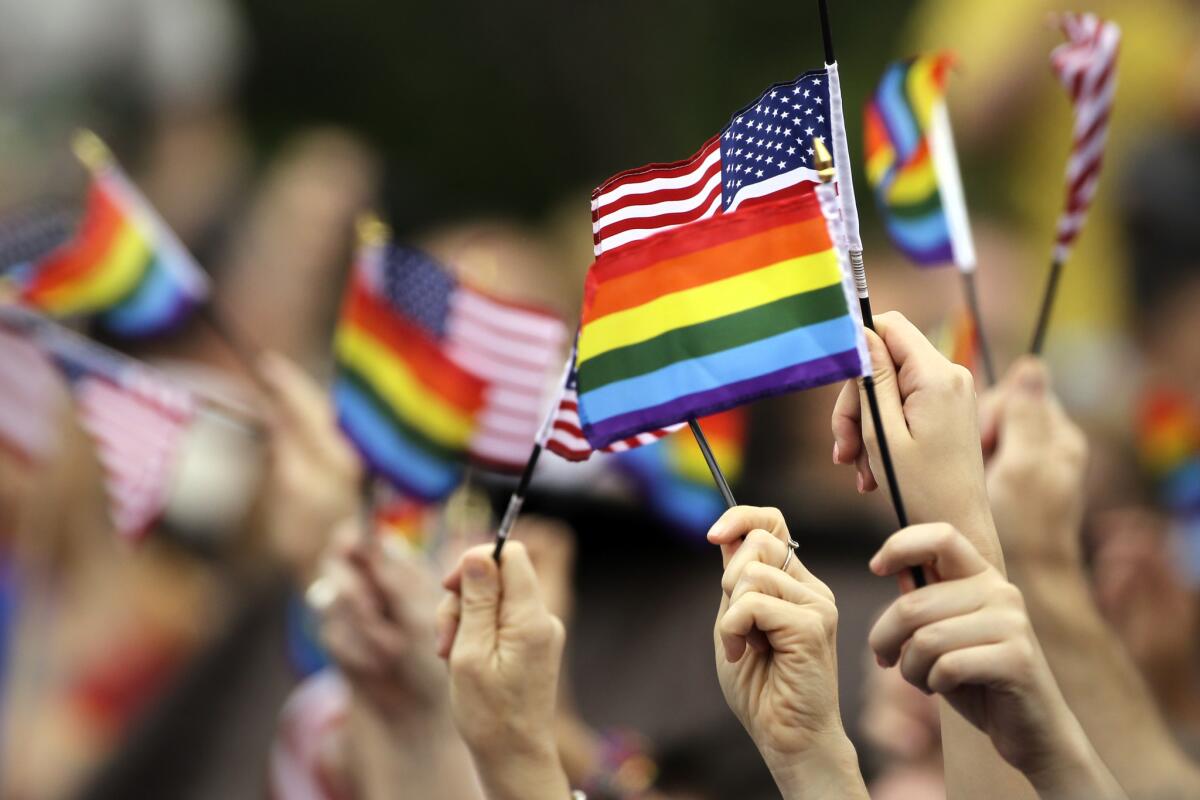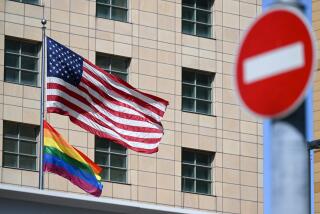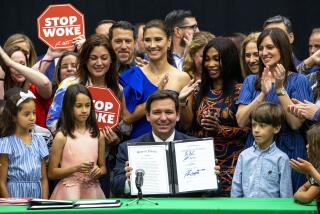Editorial: After same-sex marriage ruling, broadening the quest for gay rights

Flags are waved during the National LGBT 50th Anniversary Ceremony on July 4 in front of Independence Hall in Philadelphia. The event marks the 50th anniversary of a protest outside Independence Hall that would prove to be a milestone in the fight for gay rights.
Now that the Supreme Court has ruled that the Constitution guarantees a right to same-sex marriage, advocates of equality for gays and lesbians hope to maintain the momentum by securing equal treatment in other areas, notably employment. As Rep. David Cicilline (D-R.I.) pithily put it in a Washington Post article: “You can be married on Saturday, post your pictures on Instagram on Sunday and fired from your job on Monday” if you don’t live in a state or locality with a law against discrimination on the basis of sexual orientation.
But the already tortuous path to that goal is complicated not only by continued resistance in Congress but by a dilemma facing supporters of equality: Should they concentrate on federal legislation to ban discrimination in employment on the basis of sexual orientation, such as the Employment Non-Discrimination Act (ENDA) that passed the House and Senate at different times and in different versions but never became law? Or should they press for a bill that also would address discrimination in public accommodations, housing, the legal system and financial transactions?
Enactment of a stand-alone ban on employment discrimination would address a significant problem. In a 2008 survey, 42% of a national random sample of lesbian, gay and bisexual people said they had experienced at least one form of employment discrimination because of their sexual orientation at some point in their lives. And studies of states that outlaw discrimination in employment on the basis of sexual orientation found that gays, lesbians and bisexuals filed complaints in roughly the same proportions as women alleging sex discrimination and minorities alleging racial discrimination.
But employment isn’t the only arena in which discrimination takes place. We believe that federal law should protect gay, lesbian and transgender Americans whether they are applying for a job, looking for an apartment or seeking to rent a hotel ballroom for a wedding reception. That is also the view of prominent civil rights and civil liberties organizations and leading supporters of gay rights in Congress.
One option is to amend the landmark 1964 Civil Rights Act, which prohibits discrimination on the basis of race, religion, national origin and, in employment, sex. The goal would be to add sexual orientation and gender identity to that list, rather than craft a separate statute along the lines of the Americans with Disabilities Act. As a practical matter, it wouldn’t make a difference how the new provisions were packaged; they would all be part of the U.S. Code. But embedding the new protections in the text of a legendary law would be a powerful symbol of the inclusion of gay, lesbian and transgender Americans in the promise of equality.
Advocates understand that seeking to ban discrimination in areas beyond employment would engender additional controversy. For example, a proposal to prohibit discrimination in public accommodations could become embroiled in the debate over whether businesses with religious objections to same-sex marriage should be able to refuse to provide products or services for such celebrations. But religious exemptions also would be an issue in a stand-alone ban on employment discrimination. The version of ENDA that passed the Senate in 2013 went too far by excluding from its coverage any religious institution that was exempted from the religious-discrimination provisions of the Civil Rights Act. Those provisions were designed to allow a church or other religious institution to prefer members of its own flock to applicants or employees of other faiths. They shouldn’t be used to justify discrimination on the basis of sexual orientation.
Whether the issue is employment or public accommodations, the law shouldn’t allow religion to be used as a cloak for discrimination. The backlash against proposed “religious freedom” laws in Arizona, Indiana and Arkansas suggests that the public increasingly recognizes that fact. So should Congress.
At some point, advocates for equality might have to consider lowering their sights and contenting themselves with enacting a bill that accomplishes only part of their agenda. But for now they are right to think big — as the architects of the legal challenge to bans on same-sex marriage did.
Follow the Opinion section on Twitter @latimesopinion and Facebook
More to Read
A cure for the common opinion
Get thought-provoking perspectives with our weekly newsletter.
You may occasionally receive promotional content from the Los Angeles Times.






